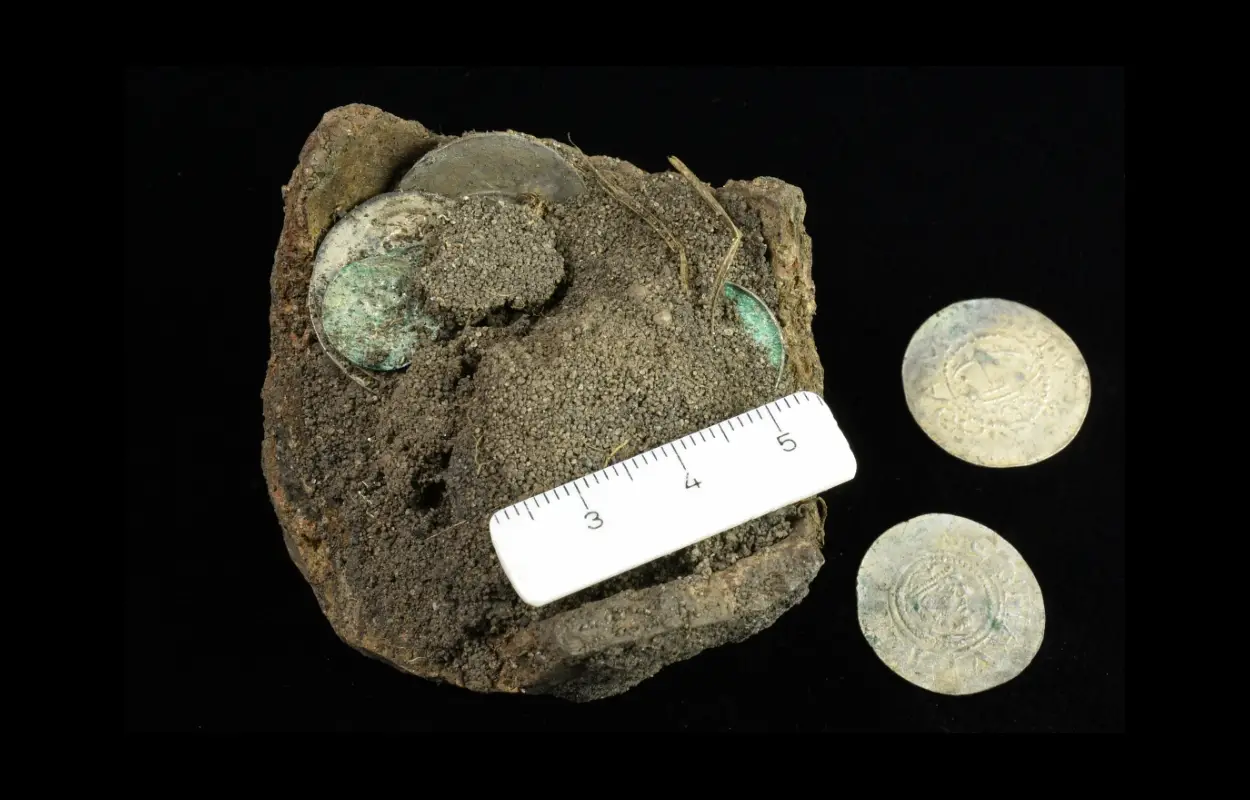During a forest restoration project near Lübs in the Jerichower Land district of Saxony-Anhalt, a team of archaeologists have unearthed a large hoard of nearly 300 silver coins dating to the 11th century AD.
The coins were found at a depth of 35 centimetres in an area being prepared for tree planting east of the Elbe River.
Due to the region being well known to local heritage enthusiasts and detectorist groups, the project was attended by volunteers from the State Office for Monument Preservation and Archaeology of Saxony-Anhalt, who discovered the glint of silver during a fieldwalking inspection.
Upon further investigation, the glint was revealed to be a compact cluster of coins within a 30-centimetre-wide discoloured path of earth.
Fragments of broken ceramics indicate that the 272 silver coins—comprising 196 denarii, 65 high-rimmed pfennigs, and 12 high-rimmed obols—were originally stored in a ceramic vessel.
Textile fibres at the bottom of the compact cluster also suggest that the coins were either wrapped in a woven cloth, or that the textile served as a lining for the ceramic vessel.
Among the oldest coins is a high-rimmed pfennig minted during the tenure of Archbishop Gero of Magdeburg (AD 1012–1023), as well as coins issued under Archbishop Hunfried (AD 1032–1051) with some of the earliest known inscriptions referencing the city of Magdeburg.
The most recent coin is issued under Bishop Burchard of Halberstadt (AD 1036–1059), indicating that the hoard was deposited sometime after AD 1059.
“The coins reveal not only a fascinating insight into regional minting practices but also suggest strong ecclesiastical influence, as most were struck under prominent church leaders,” said the State Office for Monument Preservation and Archaeology of Saxony-Anhalt.
Header Image Credit : LDA
Sources : State Office for Monument Preservation and Archaeology of Saxony-Anhalt





